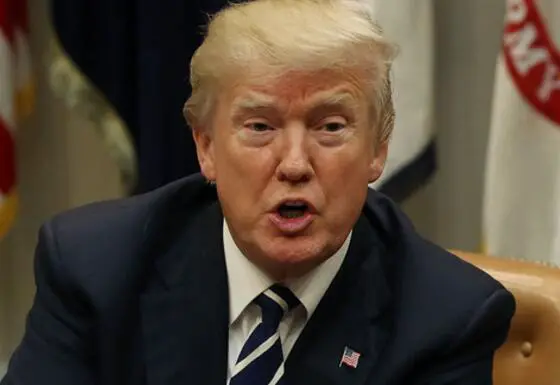By APD writer Lu Jiafei
**Washington, Nov. 3 (APD) ** -- For most U.S. presidents embroiled in serious domestic turmoil, a trip overseas could serve as a favorable distraction. Not for Donald Trump, though.
Starting from Friday local time, Trump will embark on a 12-day, five- country official trip through Asia, which will take him to Japan, South Korea, China, Vietnam and the Philippines. While it is Trump’s longest foreign trip since taking office, it will also likely be the most difficult one so far for him.
According to the White House, trade and the Democratic People’s Republic of Korea (DPRK) nuclear issue will headline Trump’s overall agenda during the trip. Though Trump is expected to reassure countries in the region of the positive and leading role the United States could assume on the dual issues, Trump would soon find the goal elusive.
On the trade issue, under Trump’s “America First” foreign policy, this U.S. administration has so far displayed preference of unilateralism and aversion to free trade by pulling out from the 12-nation Trans- Pacific Partnership (TPP) and flirting with the idea of redoing the North American Free Trade Agreement (NAFTA). This new development of U.S. trade policy sets the United States on a collision course with that of many Asian countries, which favor multilateralism in trade.
Despite Trump’s withdrawal from the TPP, the 11 nations remaining in the pact have reportedly moved closer to a comprehensive deal that advocates for free trade in the face of U.S. protectionism. In addition, Japan, U.S. key ally in the region, has already scored the Japan-EU Economic Partnership Agreement.
Unlike Trump’s willingness to dismantle some of America’s free trade agreements, Asian countries are eager to forge new ones, and by doing just that, Asian countries are sending a clear message to Trump which the impulsive U.S. leader will soon get a sense in person.
Another thorny issue on trade is the Trump administration’s absolute yet unreasonable fixation on trade deficit.
Of the five Asian countries which Trump will soon visit, four are currently entangled in trade issues created by himself. For example, U.S.-South Korean relationship went off to a bumpy start after Trump called for a renegotiation of a trade deal between the two that he claimed has fueled a 28- billion- U.S.- dollar trade deficit against the United States.
As wrote by Mireya Solís, co-director at the Center for East Asia Policy Studies at the Brookings Institution, Trump risks causing those renegotiations to fail if he doubles down on eliminating bilateral trade deficits as the central objective of the talks.
On the Korean Peninsula nuclear issue, White House national security adviser H.R. McMaster told reporters on the eve of Trump’s Asia trip that Trump “recognizes that we’re running out of time (to deal with the DPRK) and will ask all nations to do more.”
According to McMaster, one of the major objectives of Trump’s Asia tour is to strengthen international efforts to denuclearize the Korean Peninsula.
However, instead of rallying international support on the DPRK nuclear issue, the president- infamously known for his inflammatory language and dangerous unpredictability on nuclear issue- will most likely face a region alarmed by his administration’s lack of coherence in DPRK policy and his bellicosity.
The consternation among Asian countries about how Trump would handle the DPRK nuclear issue is fully justified, given Trump’s past bellicose rhetoric of “fire and fury” and his blatant threat to “totally destroy” the DPRK in his first speech to United Nations General Assembly.
However, it was Trump’s action of undercutting his top diplomat Rex Tillerson’s diplomatic efforts- with the early-hour tweets which appeared to censure Tillerson for “wasting his time trying to negotiate” with the DPRK- and his veiled suggestion that only war can solve the DPRK nuclear issue, that will make him unreliable in the eyes of the region.
Lu Jiafei, researcher of APD Institute. After spending one year in Palestine covering the Israeli-Palestinian conflict between 2013 and 2014, Lu moved to Washignton, D.C. and covered the 2016 U.S. presidential election till the very end of Donald Trump’s upset victory. He is a political contributor to APD.
(ASIA PACIFIC DAILY)
 简体中文
简体中文



